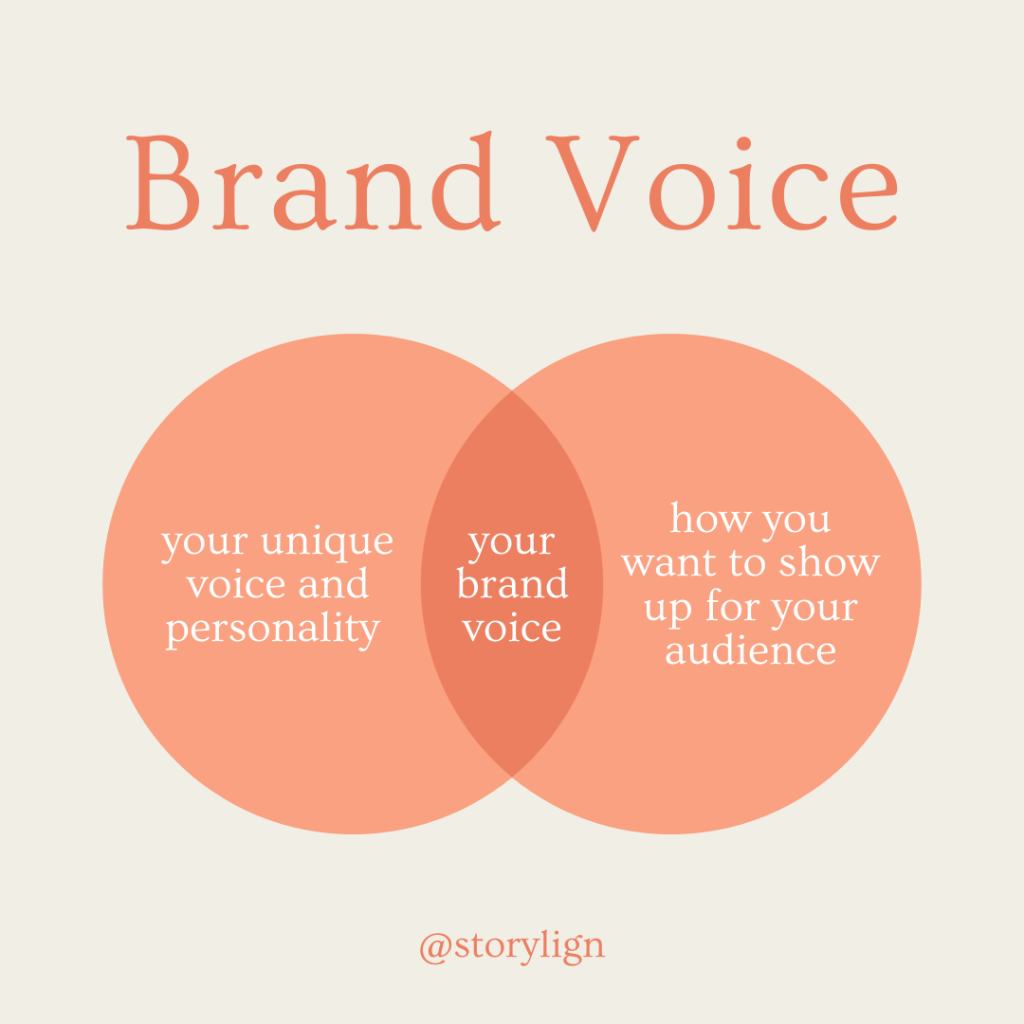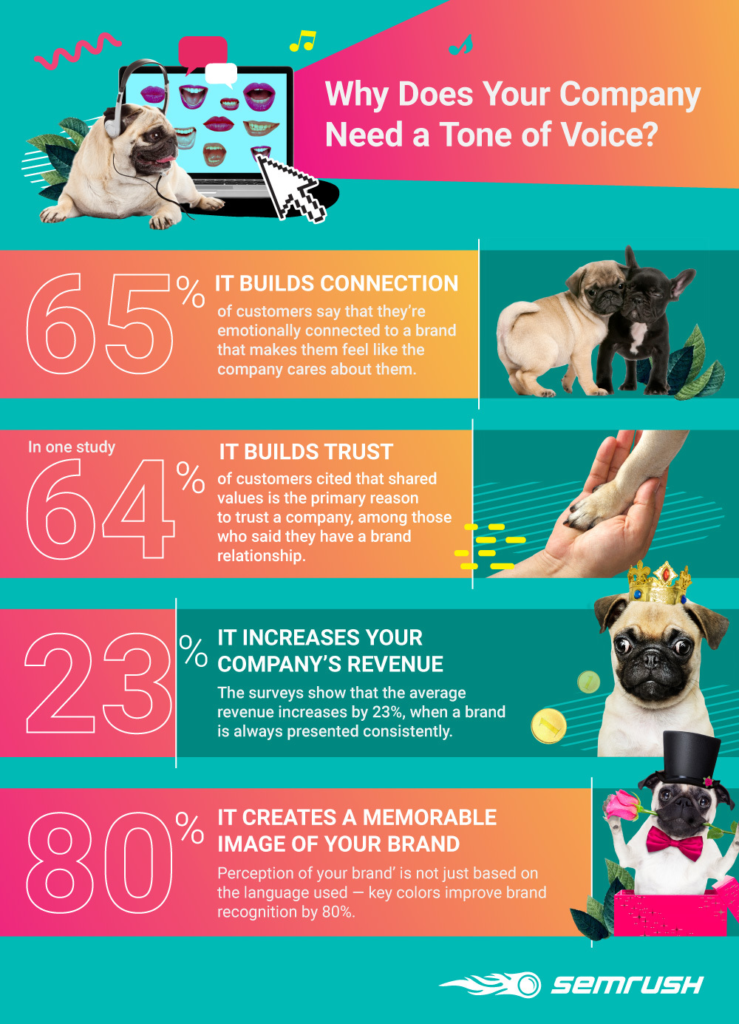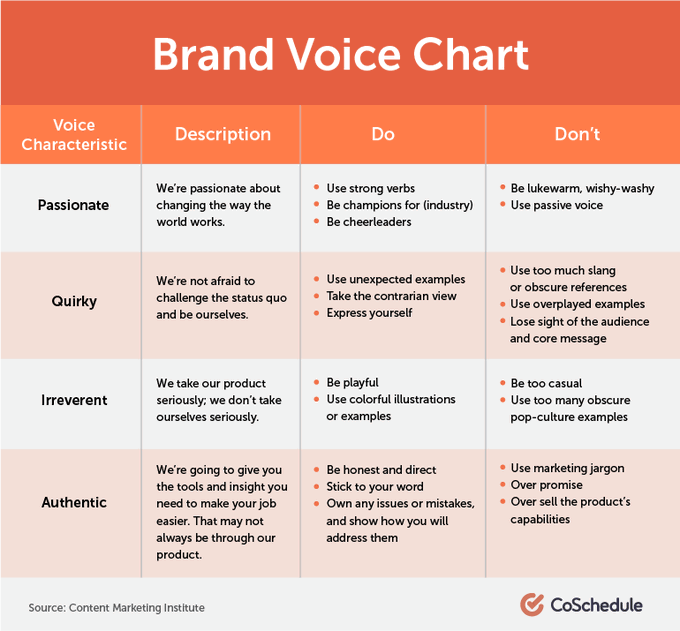
You might have a stellar business and excellent ideas, but without a brand voice, there is no chance that the customers are going to relate to or even understand your brand. Your brand voice is a crucial medium to communicate with the audience. It is what defines your brand’s personality, motivations, and values. As a brand, it is essential that you know the importance of brand voice. Here’s a quick guide to understanding the importance of a brand voice.

What Is a Brand Voice?
The distinct personality that a brand takes on in its communications is known as its brand voice. A brand, just like an individual, has personality traits, style, and tone that are unique to itself, when it communicates. Are there some phrases or words that you specifically avoid as a brand? Are there stylistic choices that you make as a brand? All this is what your brand voice consists of.
Your brand voice can be sensed in all your brand’s content, including internal communication, announcements, newsletters, social media posts, ad copy, and much more. It is what helps customers identify with your brand. It is a true representation of your services.

A brand voice can be of several types: it could be authoritative, playful, witty, kind, fun, intellectual, etc. But in order to decide the specific way in which you want to communicate with your customers, it is important to have concrete goals. You should also have a set of brand values that everyone in your organization adheres to.
What Is the Importance of a Brand Voice?
Here are some points that demonstrate the importance of a brand voice.

1. It establishes your brand’s persona
Your brand voice is what establishes the persona of your brand. It is the way your customers will see you and identify with you. It is a reflection of your value proposition. What are your core values as a brand? How are your services? These points are all an intrinsic part of your brand voice. In the constantly advancing world of digital media, it is even more crucial to have a brand voice that shapes your business’ persona effectively. By successfully building your persona, you will be able to convert web visitors into potential customers in a much easier way.
2. It lessens the gap between your brand and its customers
With a clear brand voice, the gap between your brand and your customers can be lessened significantly. As customers, all of us develop an emotional connection with certain brands, over time. And in order to connect that richly and closely with your customer base, you need to speak their language, as a brand. Use three factors—time, place, and intent—to flesh out what your brand voice should exactly be like. Do you want to educate the audience, inform them, entertain them, or make them a part of the conversation? Figure out the right tone of voice for your brand.
3. It helps the brand maintain consistency
The major importance of brand voice is that it allows your brand to have consistency in its communications. Consistency helps build a professional and trustworthy image. Additionally, quality is a core element in branding, and your brand voice is what hints at the quality of all that you put out.
4. It enables your brand to stand out
Most importantly, for any brand to cut through the clutter in the digital landscape that is constantly evolving, its logo, visuals, and other communication have to be starkly different and unique. A brand voice is the cornerstone of any brand’s content strategy. It is what further shapes your brand’s messages. Memorable content and masterful storytelling can only happen when you truly know your brand voice and are consistent with your messages. In order to be identified as a distinct brand in the market, it is crucial to have a brand voice.
How to Create a Brand Voice in 6 Steps
Let’s take a look at the quick yet effective guide on how to create a brand voice.

Step 1: understand your brand’s mission
Figuring out your company’s mission and value statement is a good start towards creating a brand voice. With a clear statement or brand mission, you will be aware of the key characteristics of your brand. Is it the transparency you are seeking as a brand? And are user-friendliness and modernity the pillars of your business? These values are what will be embedded in each and every piece of your brand’s content.
Step 2: conduct audience research

A successful brand resonates with the audience. Always consider your buyer persona when while creating your brand voice. What does your average customer like to do? What kinds of content pieces do they prefer to read? Do they appreciate the humor? Conducting audience research is not only important for creating a brand voice but is also required to create other content pieces. You can use analytics tools, such as Google Analytics, to assess what type of content is preferred by your customer base.
Step 3: observe and learn
Audit your brand’s exciting content. Which content pieces have performed the best? What is their key characteristic? Carefully assess your best-performing content pieces and consider the reasons why they worked, and in what way they made an impact. Since your audience has already shown a preference for those specific pieces, analyze what parts work and how they can be replicated. An essential part of this learning process is to make a list of dos and don’ts. What mistakes do you want to avoid as a brand? What mistakes have led to failed content pieces in the past? This will help you further eliminate the unwanted elements when framing a brand voice.
Step 4: consult an agency
In case it is difficult to create a brand voice by yourself, there is absolutely no harm in consulting an expert. There are consultancies that help brands create a distinct voice. Forbes’ BrandVoice program is one such great initiative. A third-party content marketing agency can help your company hone your ideas and deliver the best and most appropriate content that is in sync with your brand voice.
Step 5: create a style guide
It is a good idea to have a place where all your brand’s content is documented. In case your brand has its own team of writers, a training course or short module to help them understand the brand’s voice and style can be really helpful. However, in case you are hiring external writers or collaborating with freelancers, having a set of guidelines for them will go a long way in making your work easier. A style guide will precisely convey your content requirements to guest writers and all other stakeholders of the organization.
Step 6: use a brand voice template
A number of brands use voice templates or brand voice charts in the process of creating their brand voice. A table can help your company formalize the process. In the template, fill in three to five core characteristics that you feel are important for your brand or that should be inculcated by the writers when creating content for your brand.

A brand voice template helps you actualize ideas into action. This can be easily created using a Google Sheet or even an Excel sheet on Microsoft Office. Share this brand voice chat with your team, so that they can maintain consistency when it comes to producing content. The entire point of having a brand voice chart is to maintain consistency across your brand’s communication and messages.
Whether it is social media posts, landing pages, a call-to-action button, email newsletters, or more, a brand voice chart is what helps you maintain uniformity across the board. The “characteristics” column in a brand voice template is followed by an adjoining “descriptions” column that has a five-ten word summary.
Your brand voice is what builds a perception of your brand in your audience’s mind. They associate your service, trustworthiness, and distinctiveness with the voice of your brand. To begin with, think of the three adjectives you closely associate with your brand. Let’s say you have narrowed it down to quirky, intellectual, and authentic. You can now define these adjectives further in terms of how your brand relates to each.
It is also equally important to revisit your brand voice and update it, keeping in mind the changing trends and requirements of your industry. Always keep your audience in mind when creating a brand voice. Remember, your brand voice is the seamless cord between you and your customers.
Key Takeaways
- A brand voice is a distinct personality that a brand takes on in its communications. It is what leverages your emotional connection with your customers.
- In order to be identified as a distinct brand in the market, it is crucial to have a brand voice. Your brand voice reflects what your company is and what it can offer to its customers.
- The intent, time, and place are important factors in discovering the brand’s voice.
- Figure out your company’s mission, core values, and value statement before creating your brand voice. These values are what will be embedded in each and every piece of your brand’s content.
- A successful brand is what resonates with the audience. Always consider the buyer persona when building a brand voice.
- Have detailed guidelines that can effectively assist writers, whether internal or freelancer collaborators, to adhere to your brand’s voice when framing content.
FAQs
Nike is famous for its inspirational brand voice, infused with an element of perseverance. This reflects well in its legendary slogan, “Just Do It.” Its inspirational tone is what makes Nike one of the world’s most popular brands for athletes and sportspersons.
A chart that summarizes the brand voice of an organization is known as a brand voice chart. It includes elements, such as characteristics, do’s and don’ts, descriptions, and more. A brand voice chart is what acts as a quick reference for anyone creating content for your brand
The brand voice is your brand’s personality, which remains consistent with each message of your brand, and throughout your content. The brand tone, on the other hand, is the expression of that personality.
Some brands that have a clear and well-defined brand voice are as follows:
1. Mailchimp
2. Coca-Cola
3. Old Spice
4. Tiffany & Co.
5. Starbucks
6. Uber
7. Harley Davidson
In order to develop a brand voice, you should conduct audience research and create a guide that outlines your brand’s mission, vision, social strategy, etc. It is extremely important to audit the current voice of your brand, as well as keep in mind your audiences and their buyer personas. Lastly, review and adapt.
Apple has a great command over its brand voice as well as tonality. Its brand voice is characterized by short and declarative sentences, which are informal, and delivered to the customers with a dash of smugness.
Latest Blogs
Learn how to rank on AI search engines like ChatGPT, Perplexity, and Gemini by optimizing your content for authority, structure, and relevance. Stay ahead in AI-driven search with this strategic guide.
Explore the best healthcare SEO services for your medical practice. Improve online visibility and effectively reach more patients in need of your services.
Discover top social media agencies specializing in banking solutions, enhancing financial services and driving engagement.
Get your hands on the latest news!
Similar Posts

Branded Content
5 mins read
Brand vs. Branding vs. Brand Identity: The Difference

Branded Content
4 mins read
The 5 Best Brand Colors to Choose From in 2022

Branded Content
5 mins read